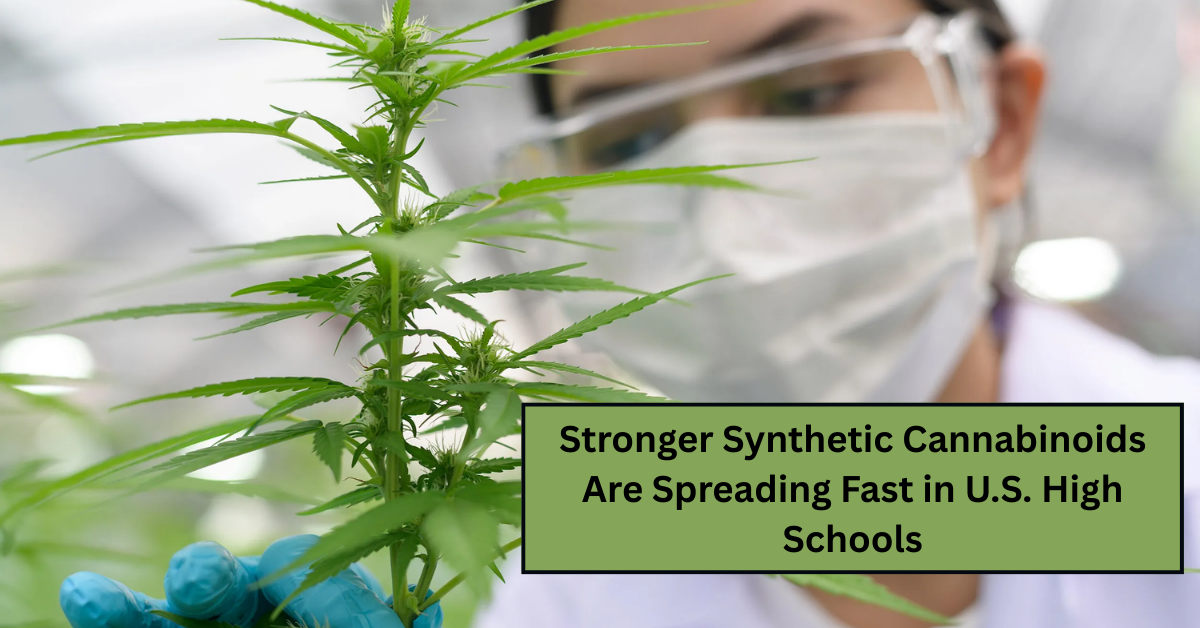Across the United States, new and stronger forms of synthetic cannabinoids are becoming increasingly common in high schools. These substances, often laced with dangerous chemicals, can cause severe health risks. Researchers are warning parents, teachers, and students about the rising use of these powerful drugs and their potential harmful effects.
The spread of synthetic cannabinoids in schools is a growing concern for communities nationwide. These drugs are easier to get than ever before and can be more dangerous than natural cannabis. Understanding what synthetic cannabinoids are and why they are risky is important to keep students safe and informed.
What Are Synthetic Cannabinoids?
Synthetic cannabinoids are man-made chemicals designed to mimic the effects of natural cannabis. Unlike marijuana, these synthetic drugs are created in laboratories and sprayed onto plant materials or sold as liquids. They are often called “spice,” “K2,” or “fake weed,” making them sound harmless, but that is far from the truth.
Because these substances are chemically different from natural cannabis, they can have stronger and more unpredictable effects on the brain and body. People using synthetic cannabinoids may experience extreme anxiety, hallucinations, seizures, or even life-threatening conditions.
Why Are Synthetic Cannabinoids a Problem in High Schools?
Synthetic cannabinoids are a major concern in high schools because they are cheap, easy to hide, and often undetectable in standard drug tests. Students may choose these substances thinking they are safer or legal alternatives, but that is a dangerous misconception. These drugs can lead to addiction, poor academic performance, and serious health issues.
Researchers have noticed stronger versions of synthetic cannabinoids becoming popular among teenagers. These newer chemicals can be far more powerful than older ones, increasing the risk of overdose and violent behavior. Schools struggle to keep up with the changing nature of these drugs, making prevention even harder.
Health Risks of Using Synthetic Cannabinoids
The health risks linked with synthetic cannabinoids are severe and sometimes deadly. Users can suffer from rapid heart rate, vomiting, extreme agitation, confusion, and hallucinations. In some cases, the drugs can cause strokes, kidney damage, or seizures. Emergency rooms have reported a rise in cases involving synthetic cannabinoid overdoses.
Synthetic cannabinoids can also affect mental health. Teenagers may experience increased paranoia, anxiety attacks, or psychotic episodes. Unlike natural cannabis, there is little understanding of long-term effects on young brains, making these substances particularly dangerous for adolescents still developing.
How Parents and Schools Can Respond
Awareness and education are the best weapons against the spread of synthetic cannabinoids in schools. Parents should talk openly with their children about the dangers of these drugs and monitor for any signs of use. Schools can organize workshops and invite experts to educate students about the risks.
Additionally, schools need to work closely with law enforcement and healthcare providers to identify and respond quickly to synthetic cannabinoid cases. Drug policies should be updated to address new synthetic drugs, and counseling support must be available for students struggling with substance use.
Spotting the Signs of Synthetic Cannabinoid Use in Teens
Recognizing when a teenager might be using synthetic cannabinoids is important for early intervention. Some common signs include sudden mood swings, confusion, dizziness, nausea, and unexplained aggressive behavior. Physical symptoms may also include red eyes, sweating, or unusual smells on their clothes.
If a student or parent notices these signs, it’s important to seek professional help immediately. Early support can prevent more serious health problems and guide teens towards recovery and healthy decisions.
Conclusion: Staying Informed to Stay Safe
The spread of stronger synthetic cannabinoids in U.S. high schools is a serious and growing problem. These drugs pose grave health risks and can affect the lives of many young people. By staying informed and maintaining open communication, parents, teachers, and students can work together to prevent drug use and protect their communities.
It’s essential to understand that synthetic cannabinoids are not safe alternatives to natural cannabis. Schools, parents, and health professionals must unite for education, prevention, and support to stop these dangerous drugs from causing more harm among teenagers.




